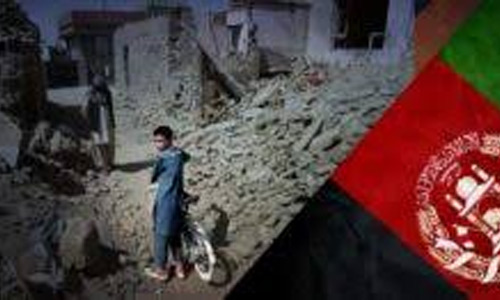The latest presidential election held in Afghanistan in September 2020 witnessed only 26 percent turnout, the lowest since 2001. It is a dismal turnout and can hardly grant legitimacy to the presidential election. It also indicates that there is a dire need to rethink the democratisation process in the country. Although it needs to be acknowledged that the reasons behind such a low turnout can be found in grievances that have built up over a long period of time, yet the performance of National Unity Government (NUG) in the past five years has yielded endemic corruption, adverse poverty, pervasive insecurity, undermined rule of law and, most importantly, undemocratic practices, all of which in turn have caused distrust in the government and democratic institutions.
Post -Taliban constitutional developments
On December 7, 2001, when the Taliban surrendered , the militia’s base of power and the last city under its control, nearly the same time, representatives of several anti-Taliban groups met in Bonn, Germany, named an interim administration, which was installed two weeks later. This administration held power until June 2002 when a Loya Jirga was convened that selected a transitional government to rule the country until national elections could be held and a new constitution drafted. In December 2003 another Loya Jirga was convened to consider a draft constitution that had been released in November. In January 2004, after three weeks of debate, the Loya Jirga approved the constitution, which called for a directly elected president and a two-chamber legislature. It was then signed into law by Hamid Karzai, leader of the transitional government. Democratic elections, in which women were granted the right to vote, were held in October 2004, and Karzai was elected president, winning 55 percent of the vote. Karzai’s term as president was due to expire in May 2009, and at that time he was constitutionally obligated to step down. Because of logistical and security reasons, however, the approaching presidential election—in which Karzai would be a candidate—was postponed from May to August of that year. Karzai asserted that for reasons of security he should remain in office until the election took place. Critics were concerned that maintaining his position would give Karzai an undue electoral advantage, and they urged him to step down as mandated by the constitution and turn power over to an interim government. In March 2009 the Supreme Court ruled that Karzai could legally retain his position until the election in August. The presidential election was held on August 20, 2009, and was followed by weeks of political turmoil. In September a preliminary count awarded Karzai almost 55 percent of the vote, thus indicating that he had won an outright victory over his closest challenger.
Clear deterioration of democracy
In recent decades there have been rises in the poverty rate, the unemployment rate, insecurity, and migration during the rule of the NUG. In light of those struggles democracy and freedoms have become only a second priority for the populace. As one expert puts it, “it is difficult to ask the people to sacrifice themselves for freedom and democracy when they think that freedom and democracy are incapable of giving them food to eat, of preventing the astronomical rise in the cost of substance, or of placing a definitive end to the terrible scourge of corruption that, in the eyes of the entire world, is eating away at the intuitions of [the country] with each passing day.” Afghanistan is in the throes of a similar circumstance as the Taliban gain recognition and appear stringer both on paper and on the ground. Afghan democracy is at serious risk if necessary measures are not taken to save it. The Taliban and other fundamentalist groups threaten Afghanistan’s fragile democracy and the republican system of government on the one hand; on the other, a corrupt and dysfunctional government weakens the democratic institutions and undermines rule of law. The behavior of the leadership of the Afghan government since 2014 has largely pushed democracy to the brink as they made little efforts to strengthen democracy. Rather, the government’s behavior and mode of governance has debilitated democratic institutions and has harmed the required conducive environment for a democracy to take hold on the other.
Invalidation of democratic norms
At least since the assumption of power by the NUG in 2015, powerful social movements have either been allegedly suppressed by the government or the government has failed to provide security. In 2016, the Enlightenment Movement organized the country’s largest demonstrations advocating for the re-routing of a power project, a cause which was supported by funding donors and a few current presidential candidates. The NUG has also weakened the Afghan democracy by failing to restore trust in the electoral institutions in the aftermath of a fraudulent election in 2014. After a three and a half year delay in the parliamentary elections that were finally held in 2018, and was marred by fraud, people are suspicious if they have a say in electing the president and developing government’s policies as accommodated in democracies. Among other reasons for this is a dysfunctional government, its controversial easy-going policy toward insurgent groups, and an endemic corruption. According to recent reports, on an average 70 people are killed across Afghanistan every day, and more than 54 percent of Afghan people live under the poverty line. All these developments underlie the low election day turnout. People have little trust in electoral institutions and in the political elite which has left the country at risk of being ruled by a failing and dysfunctional government facing an impending return of the Taliban and their fanatic regime.
Home » Opinion » Recent declines of democracy in Afghanistan
Recent declines of democracy in Afghanistan
| Dr. Rajkumar Singh

